Teacher shortage in Hungary critical: tens of thousands are missing
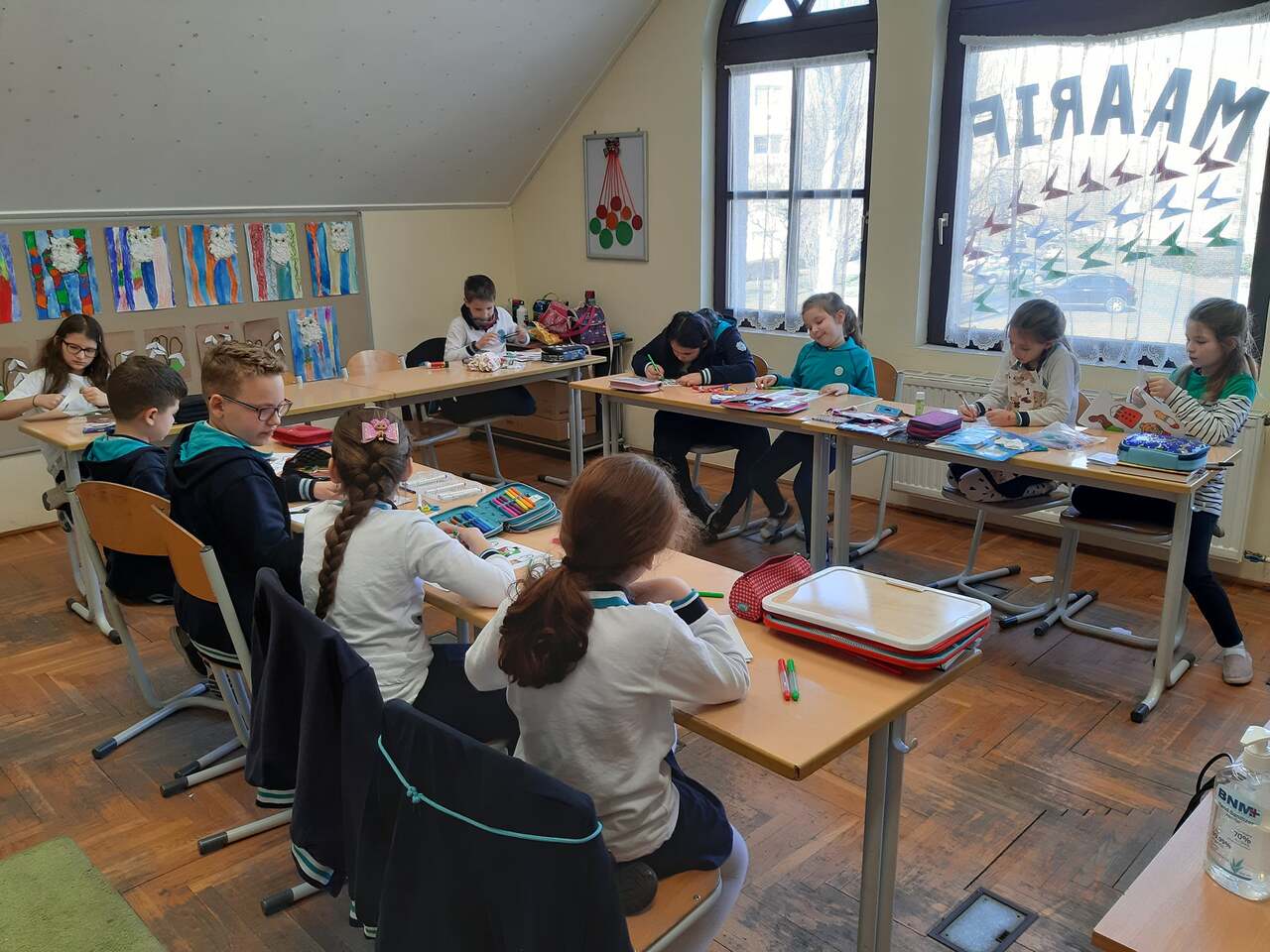
Hungary’s public education has a “critical” shortage of teachers with 16,000 of them missing from the sector, the president of teachers’ union PSZ said on Thursday, ahead of the start of the school year.
Over the next five years, a total of 22,000 teachers are expected to be missing from the system overall, Tamás Totyik told a press conference. He said that although the government was familiar with those figures, it kept “speaking in glorifying terms” about how many young Hungarians were preparing to choose teaching as a career.
In PSZ’s estimate, close to 12,000 already retired teachers had been called back to ease the shortages in schools and many schools had chosen to employ people with no appropriate qualifications “to fill the gap”.
Totyik also cited the problem of fewer classes to be held than set in the curriculum due to a lack of qualified staff and financing in addition to the low wages of teachers.
He cited a fresh national survey showing 40 percent of students as being “functionally illiterate”, calling for an “emergency plan to turn around this catastrophic situation”.
Read also:
Ukrainian school principal to abolish rights of Hungarians: Hungarian language to be eliminated
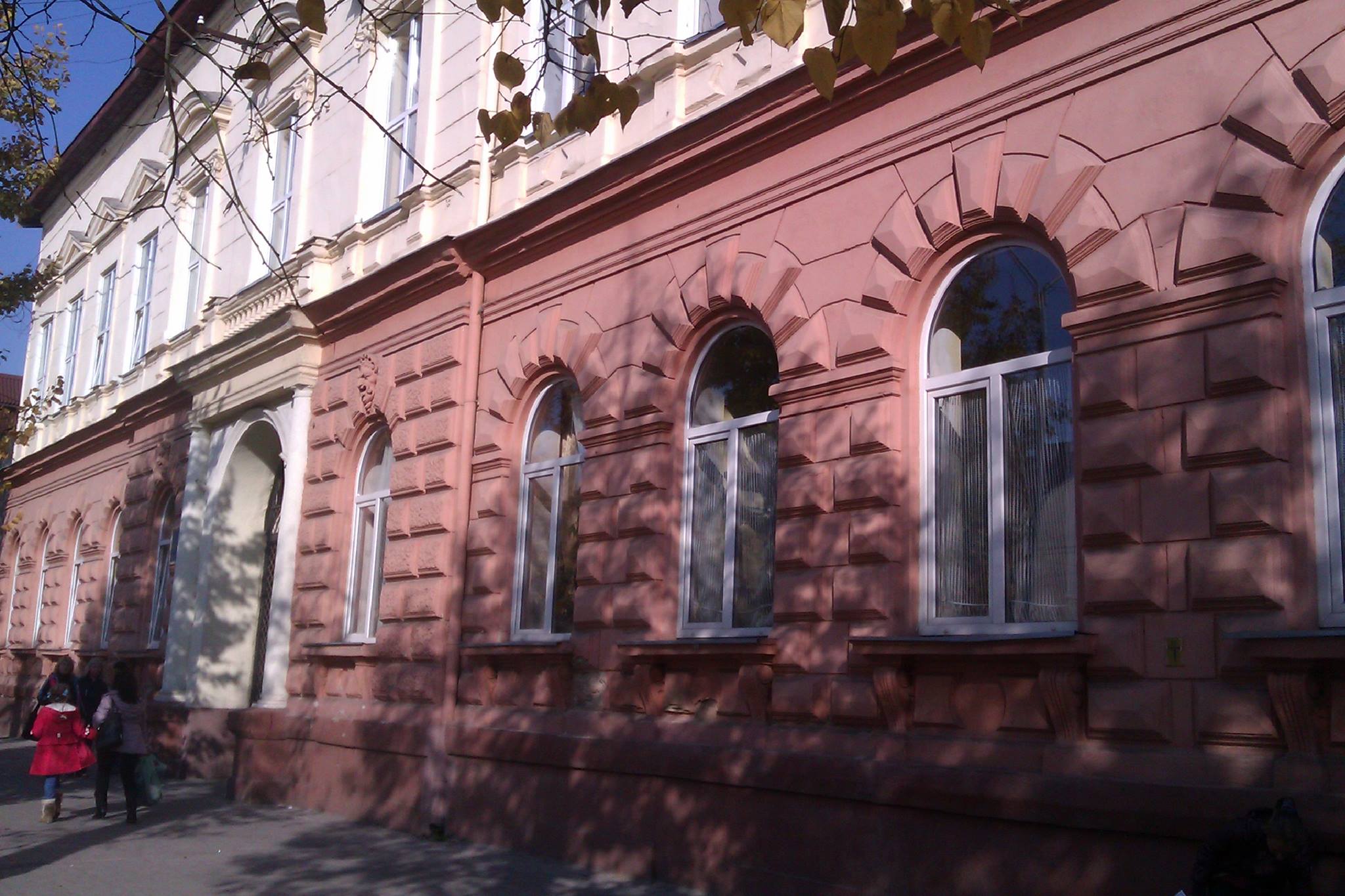
In Ukraine, the new headmaster of a Transcarpathian secondary school wants to abolish the Hungarian language and take steps to Ukrainianise education.
New principal against Hungarians
The Ferenc Rákóczi II Secondary School in Transcarpathia has just changed its headmaster. The new headmistress, Marija Pauk, is taking measures to gradually eliminate the Hungarian language and teachers and to make education more lifelong.
The former director, István Schink, was dismissed overnight at the beginning of 2023 without explanation, index.hu reports. The chair of the Hungarian Cultural Association of Transcarpathia (KMKSZ) protested in a statement that the city council had appointed a director with no ties to either the Hungarian community or the school.
Krisztián Molnár, a teacher at the school, said that the headmaster was replaced overnight. In connection with the Ukrainian language law, Krisztián Molnár said at the time that it was possible that he would have to teach his students in Ukrainian next year. The appointment of a new headmaster could be part of the restructuring of the Hungarian school.
Hungarian education banned
The Ferenc Rákóczi II Secondary School reported in a Facebook post published on Thursday that the new principal is indeed working to undermine Hungarian education.
“At our trade union meeting, the appointed director and her deputy indicated that their short-term goal is to Ukrainianise the school, to teach Hungarian as a foreign language, to start a Ukrainian first class from September, and to teach some of the subjects in Ukrainian,” the Facebook post reads.
The post describes that through the strong protest and united stand of their teaching staff, they have managed to ensure that for the time being no Ukrainian-language class will start and the language of instruction will remain Hungarian, but it is now clear that “the city administration’s plan is to end Hungarian education in our school as soon as possible”.
Mandiner.hu notes that Ukrainian President Volodymyr Zelenskyy told Katalin Novak that what the members of the Ukrainian minority in Hungary receive, they will give to the members of the Hungarian minority in Ukraine.
Hungary presents school packages in E Croatia
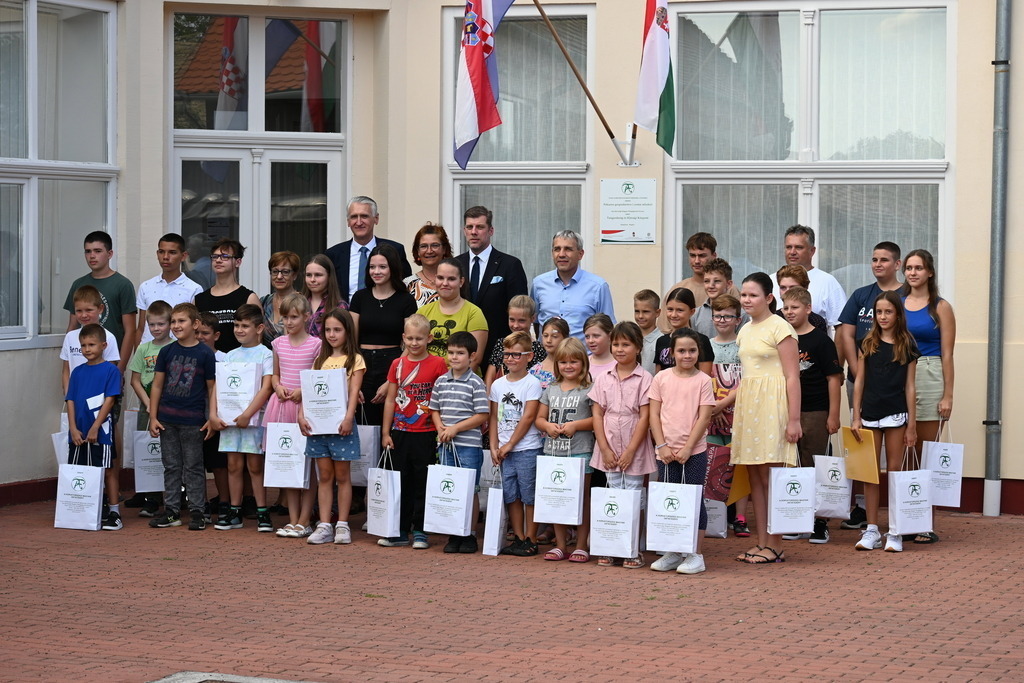
Péter Szilágyi, deputy state secretary of the Hungarian Prime Minister’s Office, presented packages of textbooks and school kits to students in ethnic Hungarian primary and secondary schools in Kopacevo, in eastern Croatia, on Wednesday.
Szilágyi said the schooling programme for students to enroll in Hungarian language education is a major incentive to preserve the Hungarian communities in regions beyond the borders.
He noted that the government had increased the amount of the grant supporting the enrollment of children in Hungarian language primary and secondary school education beyond the borders to HUF 100,000 (EUR 262) per capita from HUF 22,400.
Szilagyi said the scheme was aimed at familiarising children with Hungarian history, culture and the language also in the schools.
Putin’s ambassador will be summoned due to anti-Hungarian textbook?

Opposition Jobbik-Conservatives has called on Foreign Minister Péter Szijjártó to summon Russia’s ambassador over a textbook recently published in Russia, in which Hungary’s 1956 anti-Soviet revolution is described as a “fascist revolt”.
Jobbik deputy group leader Koloman Brenner also called on the minister to protest in a memorandum against the textbook, stating that it “echoes the ideology of communist Soviet Union”.
Brenner said the government would need to take “serious steps of distancing itself” from the textbook. This could “at last restore the equilibrium of Hungary’s foreign policy”, he added. Brenner noted that in 2016, when the Russian side referred to developments in 1956 as a “pogrom”, Szijjártó summoned the Russian ambassador.
Read also:
Government expects new school term to commence smoothly amidst serious teacher shortage
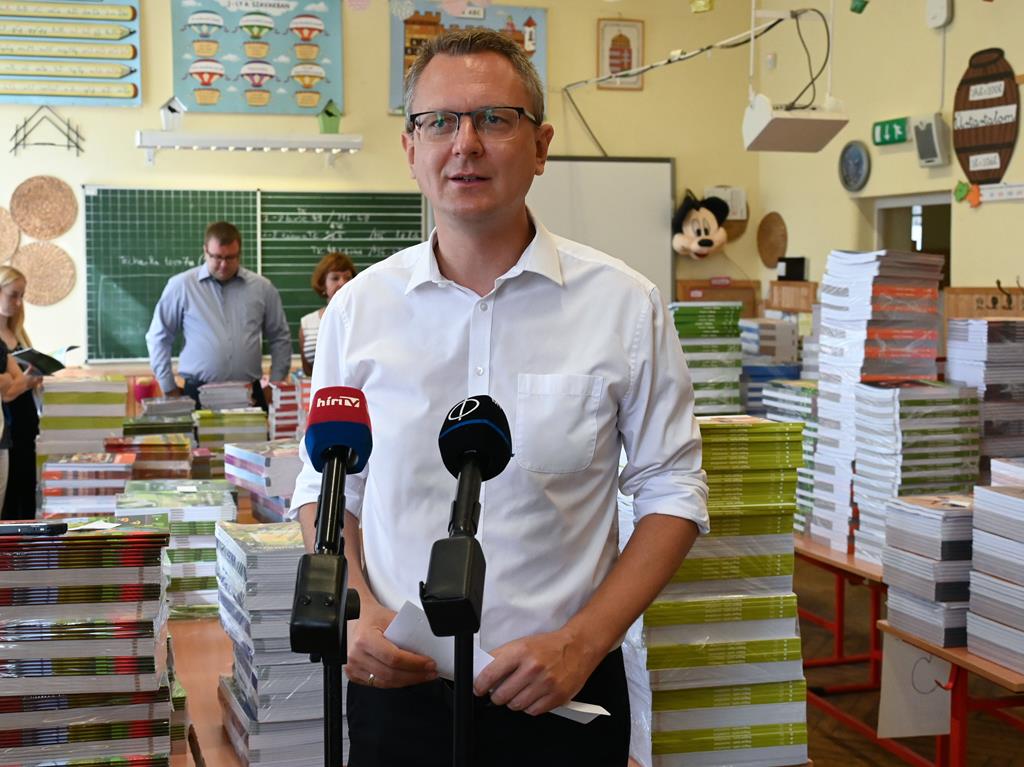
According to Pénzcentrum, the Hungarian public education system lacks a sufficient number of maths, physics, informatics, and English teachers. The problem is severe, especially in Budapest and Pest County. Meanwhile, the government officials talk about a smooth sail since the textbooks have been successfully distributed.
The teacher shortage has been a serious issue since 2016 in Hungary, Pénzcentrum wrote. The PDSZ teachers’ trade union said the majority of schools do not upload job vacancies on their official website because from January 2024, it is no longer compulsory. Having said that, state secretary Zoltán Maruzsa said that allegations about 16 thousand missing teachers to meet demand are unfounded. However, even the government-close union head, Péter Horváth, acknowledged that the teacher shortage is a country-wide problem.
Most schools look for maths, English, physics, informatics and Hungarian teachers. According to a survey, 10% of the maths teachers do not even have a degree, and that rate is much higher in the villages.
Read also:
- Putin’s new history textbook says it was a mistake to withdraw from Hungary in 1991
- Photos: student org, teachers’ union demonstrate against law on teachers’ careers
State secretary expects a smooth sail
The textbooks for the next academic year will be delivered to schools in time to ensure an “orderly start”, Bence Rétvári, state secretary at the interior ministry, said on Monday. Speaking at a press conference, he said deliveries of some 13 million textbooks to 4,200 schools nationwide had started early in August and were completed in a timely manner. Concerning the staffing of schools, Rétvári said there had been “no extraordinary changes” in the number of teachers.
He said the provision of textbooks, free of charge to pupils, would cost the central budget a total 13.5 billion forints (EUR m). If families were to pay for the textbooks, as they had before 2010, they would face expenses of 30,000-40,000 forints (EUR 78.16-104.21) each, he added. The state secretary also said the textbooks were continually updated in cooperation with teachers and students. He noted that each textbook was given a final licence after a three-year trial period and corrections. He added that schools had an opportunity to order their textbooks from 36 publishers including both state-run and private companies.
Attention! Hungarian top university offers preparatory training in English
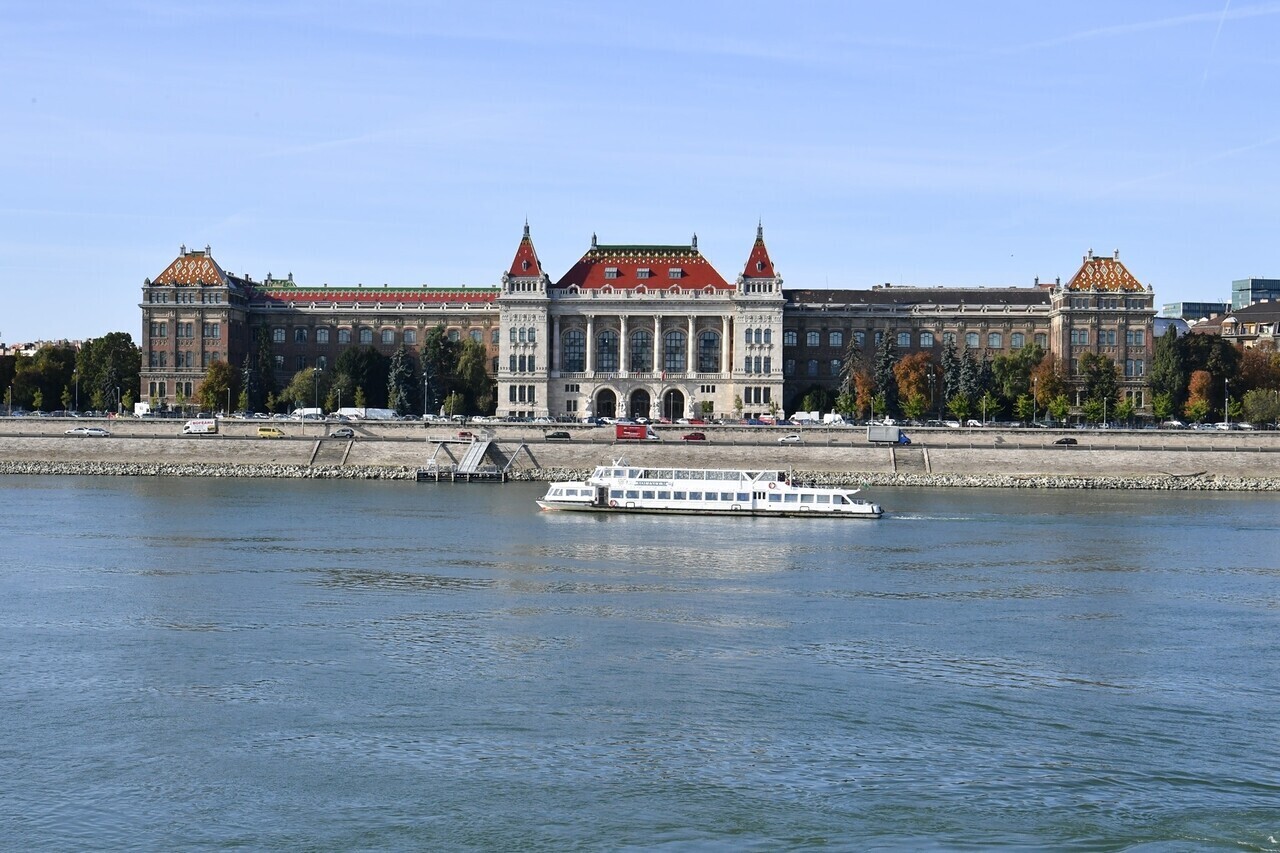
BME offers a two-semester pre-engineering programme for students interested in English-language bachelor’s degrees. The programme will provide them with the skills they need to build a solid foundation for their higher education studies.
The general objectives of the Pre-engineering Programme include the development of basic knowledge in the field of natural sciences (mathematics, physics); English language competences; the development of professional skills necessary for the chosen bachelor’s or master’s degree programme and the implementation of community-building, intercultural integration activities to support the integration of students, bme.hu wrote. HERE you may read about a free language learning opportunity for foreigners in Budapest.
Students admitted to the programme have to declare during the admission procedure and, at the latest, upon enrolment, which bachelor or single-cycle (one-tier master) programme (OTM) they intend to follow after completing their pre-engineering training. Admission to these programmes may, exceptionally, be obtained on the basis of the results achieved in the Pre-engineering Programme, in accordance with the specific requirements of the faculties. However, those who do not meet the admission requirements for the Pre-engineering Programme may still participate in the regular admission procedure and be admitted to the BME bachelor or single-cycle (OTM) programmes, regardless of their results in the pre-engineering training.
Read also:
- Student camp of Hungary’s top university cancelled due to infected food – Read more HERE
- Hungarian top university holds its place among the world’s best ones
Prepare for your university programme
During the first six weeks of the first semester of the Pre-engineering Programme, participants will attend classes online via MS Teams, but BME will also provide a community space and study room to facilitate meetings and learning together. From the seventh week of the first semester and in the second semester, classes are held on campus in a face-to-face format.
English, Mathematics and Physics are compulsory subjects for all students in both semesters, in addition to specialized subjects and specific competences necessary for the chosen bachelor’s or single-cycle (OTM) programme. Students will also get an insight into the university’s training and study system, its buildings and IT infrastructure, and get into the rhythm of student life in Budapest.
Courses of the Pre-engineering Programme are held by lecturers from the BME bachelor and master programmes, so students can start their bachelor or single-cycle (OTM) degree programmes well-prepared. The Pre-engineering Programme is designed as a preparatory training programme for the English bachelor’s and single-cycle (OTM) programmes of BME, which will also include the “Civil Engineering Preparatory Year” programme of the Faculty of Civil Engineering and the “General Course in Architecture (Preparatory Programme)” of the Faculty of Architecture from fall 2023 so that students who have applied for these programmes can also start their academic years in the Pre-engineering Programme.
Putin’s new history textbook says it was a mistake to withdraw from Hungary in 1991
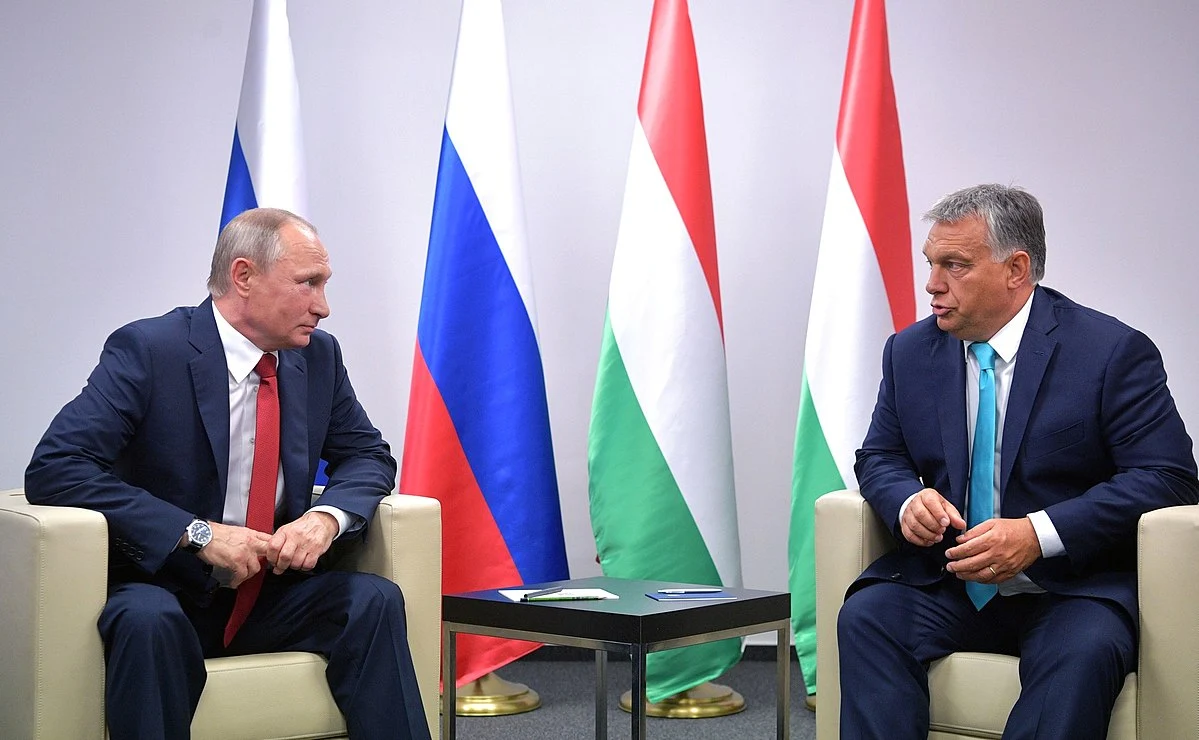
Putin has a new history textbook written by his adviser Vladimir Medinsky. According to the new textbook, in 1956, rebellious radicals, former soldiers of fascist Hungary, took up arms and committed a large number of murders. The textbook concludes that it was a mistake for Russians to withdraw from Hungary.
New Russian state history book
In 1956, rebellious radicals, former soldiers of fascist Hungary, took up arms and committed many murders. According to a G7 article, this is how the new Russian state history textbook describes the 1956 revolution of Hungary. This volume will be compulsory for the education of 17-year-olds throughout the country. The volume for 11th graders was written by Vladimir Medinsky, an advisor to Russian President Vladimir Putin.
G7 notes about Medinsky that as culture minister he fired the head of the Moscow archives for questioning the historical authenticity of the filmed legend of the Great Patriotic War, the story of 28 soldiers who stopped a German tank column in front of Moscow at the cost of their lives, 24.hu writes.
It was a mistake releasing Hungary
G7 points out that the book spends almost a hundred pages on Putin’s reign and 18 pages on the ongoing Russian-Ukrainian war. In addition to the section on Hungary in 1956, it is noteworthy that the book considers the release of the Soviet satellite states, including Hungary, to be a major mistake.
As the book writes, “In 1989, the unilateral withdrawal of Soviet troops from Eastern and Central Europe began. This was a particularly ill-considered decision, because the weakening of the Soviet military presence in the Allied countries caused a rise in nationalist and anti-Soviet sentiment’.
Neo-nazism, brutal tactics in Ukraine
For example, according to the G7 article, in the sub-chapter on “Ukrainian neo-Nazism”, they discuss how, since the 1990s, generations have been “raised with anti-Russian, neo-Nazi ideals” and the Ukrainian army, following NATO orders, uses its own citizens as human shields, not allowing them to leave their homes. According to the textbook, ‘no army in the history of the world has ever used such brutal tactics on its own territory’.
Read also:
Deputy PM: Schools best tool to preserve identity, communities and culture of Hungarians across borders

Maintaining schools and Hungarian-language education is key to preserving Hungarian communities across the borders, Deputy Prime Minister Zsolt Semjén said on Monday, at the inauguration of 38 school buses for transporting Hungarian children to school in Transylvania.
Unveiling buses operated by the Rákoczi Foundation, Semjén said currently 252,000 children were enrolled in Hungarian-language education in the Carpathian Basin, in 1,700 kindergartens, 1,243 elementary schools, 259 secondary schools and 20 colleges of tertiary education, he said.
The Hungarian government also supports many children in Hungarian education with a HUF 100,000 (EUR 260) annual grant, he added.
Gergely Gulyás, the head of the prime minister’s office, said that schools were the “best tool to preserve the identity, communities and culture of Hungarians across the borders”. The government has taken on the responsibility of caring for the lives of Hungarians across the borders, as enshrined in the Fundamental Law, he said.
The government supported the purchase of the buses with a HUF 500 million (EUR 1.3 million) grant, and the Rákóczi Foundation provided HUF 150 million (EUR 391,000), he said.
Hunor Kelemen, the head of the ethnic Hungarian RMDSZ party in Romania, said the school bus programme would help 2,500 children to attend Hungarian-language schools in the country.
Orbán welcomes more Tatar students in Hungary
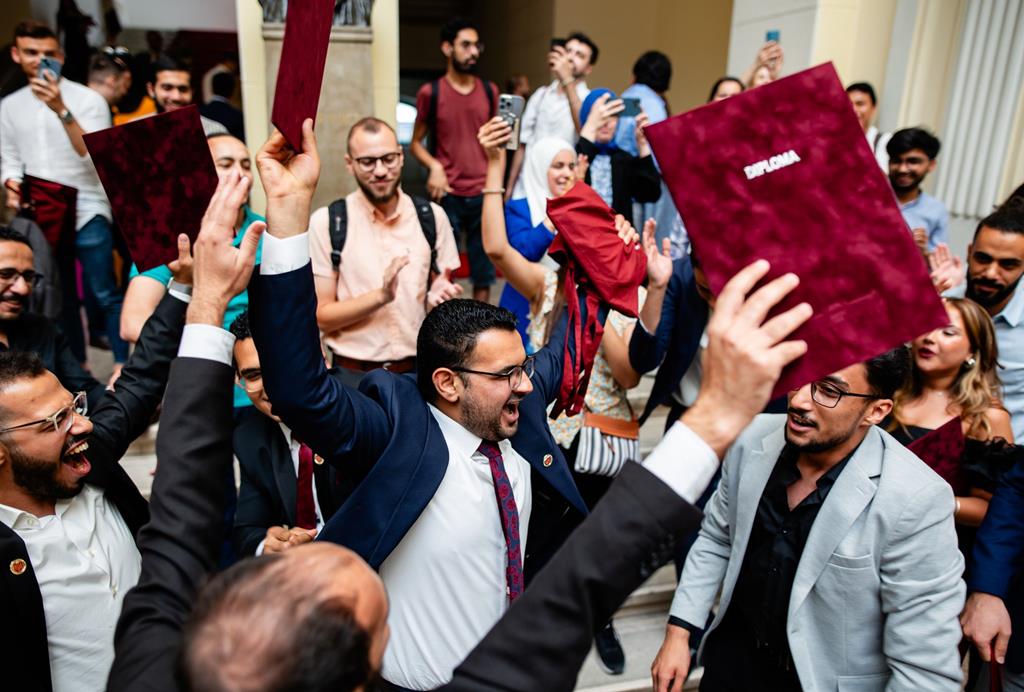
Prime Minister Viktor Orbán on Saturday held bilateral talks with Rustam Minnikhanov, the head of the Republic of Tatarstan, the prime minister’s press chief said.
The two leaders were in agreement that Hungary and Tatarstan were prepared to continue working together based on their shared achievements in sectors where cooperation is possible, such as agriculture, Bertalan Havasi told MTI. Despite the sanctions and political difficulties, the Hungarian companies present in Russia are exploring ways to expand their activities, they said.
Orbán said Hungary and Tatarstan were also aiming to continue their cooperation in the areas of culture, science and higher education, adding that Hungary would continue to welcome students from Tatarstan within the framework of the Stipendium Hungaricum scholarship scheme.
Read also:
- Want to study in Hungary? Here are some scholarships for international students – Read more HERE
- Hungarian government wants to protect president who deported Ukrainian children from sanctions
- Students in Hungary in trouble: low scholarships, financial problems
Hungary-Tatarstan summit:
Hope on the horizon? Ministry and teachers sign cooperation deal
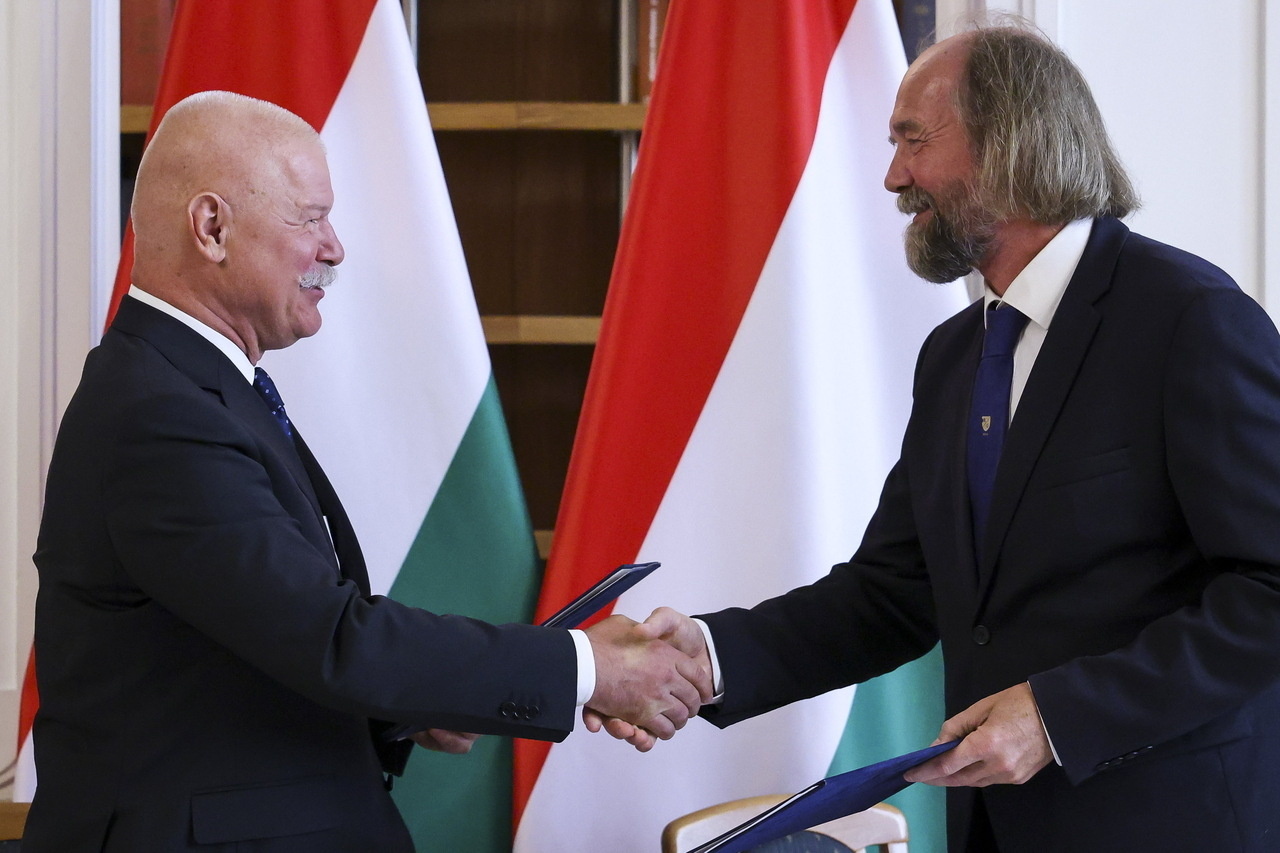
Culture and Innovation Minister János Csák on Thursday signed a comprehensive cooperation agreement with Péter Horváth, head of the National Teachers’ Corps.
At the signing ceremony, the minister said the achievements reached under the agreement could make a change for the whole nation. He said the teachers’ corps was “monitoring trends relevant for competitiveness both in Hungary and abroad” while his ministry was in charge of vocational training, and higher and adult education. He said the cooperation would pay special focus to young talent, and called for teachers’ cooperation to “find development opportunities” for them.
Csák said he trusted that the agreement would “serve the children and families” adding that it was “in their interest that we need skilled and committed teachers”.
Horváth said his organisation considered it a primary task to “help teachers with their work and mediate between them and the government”. He urged that the achievements of programmes for disadvantaged children, vocational training developments and other schemes should be evaluated, adding that it was “especially important who will be teachers and how they will teach”.
Hungary will rebuild a Croatian school
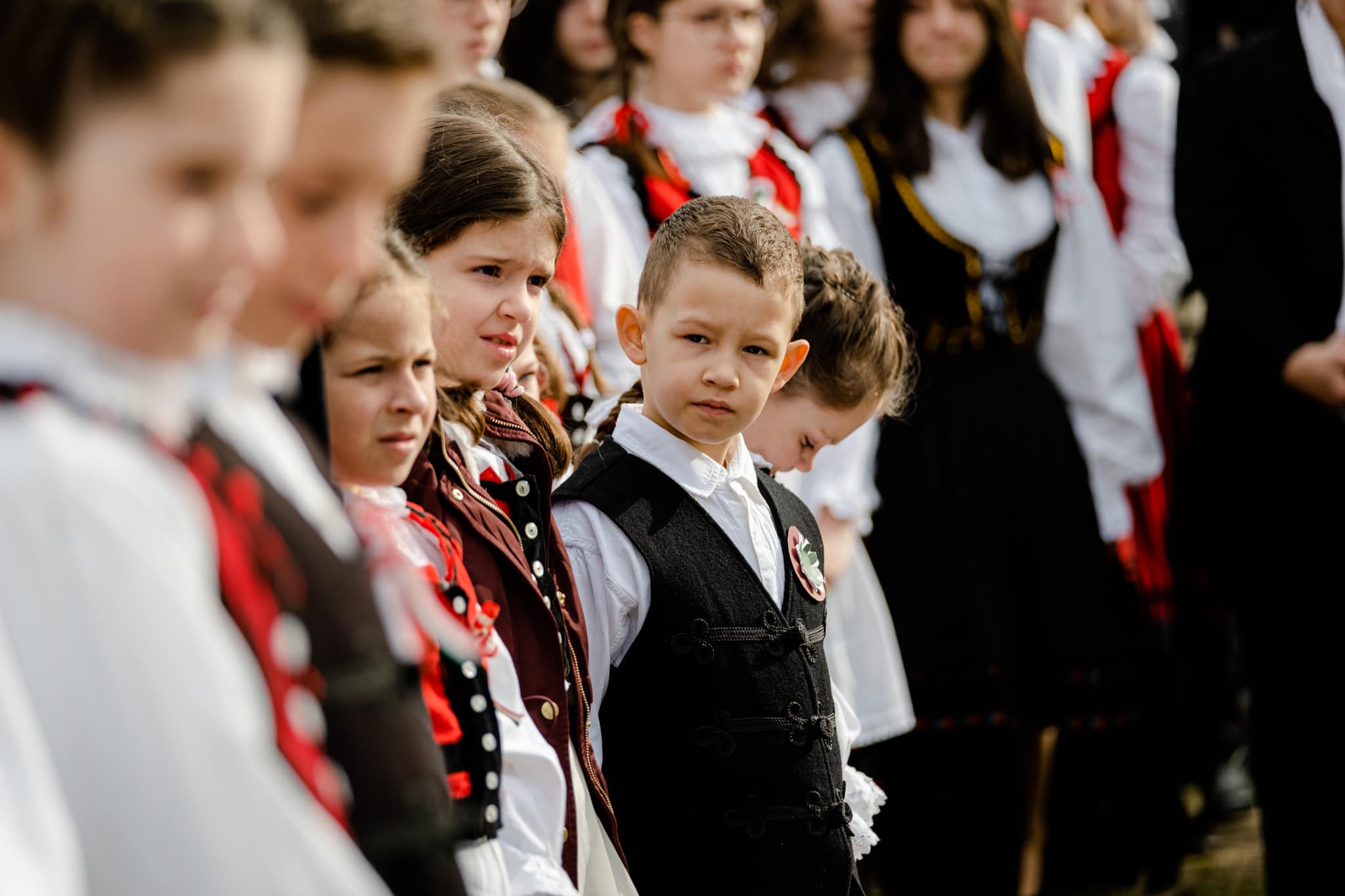
An agreement has been reached between the Hungarian and Croatian governments on funding for the reconstruction of a primary school, with Hungary’s help, in Petrinja in Croatia, Foreign Minister Péter Szijjártó said on Thursday.
The Croatian government has agreed to contribute the cost of the VAT, or 1.6 billion forints (EUR 4.2m), for the reconstruction of the school with 20 classrooms and a gym which was destroyed by an earthquake in 2020, Szijjarto said on Facebook. He added that earlier in the day, he had discussed the matter with Branko Bacic, Croatia’s minister of construction. The personal involvement of Hungarian ethnic MP Robert Jankovics was essential in resolving the issue, he said.
Hungary was among the first countries to offer its help for damage recovery following the earthquake, and it provided more than 8 billion forints for the project in Petrinja, he said. However, the issue of VAT payment requirement caused a delay, and this has now been resolved, he added.
Graduates receive quality degrees at one of Hungary’s most international universities

The graduates received their BME diplomas at the international graduation ceremony held in the aula of the BME Central Building on 21 July 2023.
Several ambassadors of the countries of these graduates also attended the ceremony, streamed online. 207 student received their diplomas, 37 of them with distinction. These graduates came from 48 countries to BME, from Azerbaijan, China, Pakistan, Kazakhstan and Jordan in the greatest numbers, and students even from Malaysia, Ecuador and Saudi-Arabia were among the graduates of the spring term.

|
Members of the Academic Procession arriving to the tune of Gaudeamus Igitur: Emília Csiszár KoczkánéVice-Rector for international affairs; Miklós Verseghi-Nagy Chancellor; István Szászi honorary guest of the alumni, head of Bosch in Hungary and in the Adriatic region; Olivér Fenyvesi Associate Professor (BME Faculty of Civil Engineering); Csaba Hős Vice-Dean for scientific and international affairs (BME Faculty of Mechanical Engineering); Ágnes Balogh Gyetvainé Vice-Dean for international education affairs (BME Faculty of Architecture); Zoltán HellProfessor, Course Director (BME Faculty of Chemical Technology and Biotechnology); Eszter Udvary Gerhátné Associate Professor (BME Faculty of Electrical Engineering and Informatics); Ádám Török Vice-Dean for international and scientific affairs (BME Faculty of Transportation Engineering and Vehicle Engineering); István Prok Vice-Dean for education (BME Faculty of Natural Sciences); András Bethlendi Vice-Dean for economic affairs, Associate Professor and Head of Department(BME Faculty of Economic and Social Sciences); and Levente Nagy, representative of the Student Union of the University in charge of international and Erasmus affairs. The ceremony was moderated by Eszter Mozsár, administrator expert of the Rector’s Cabinet. |
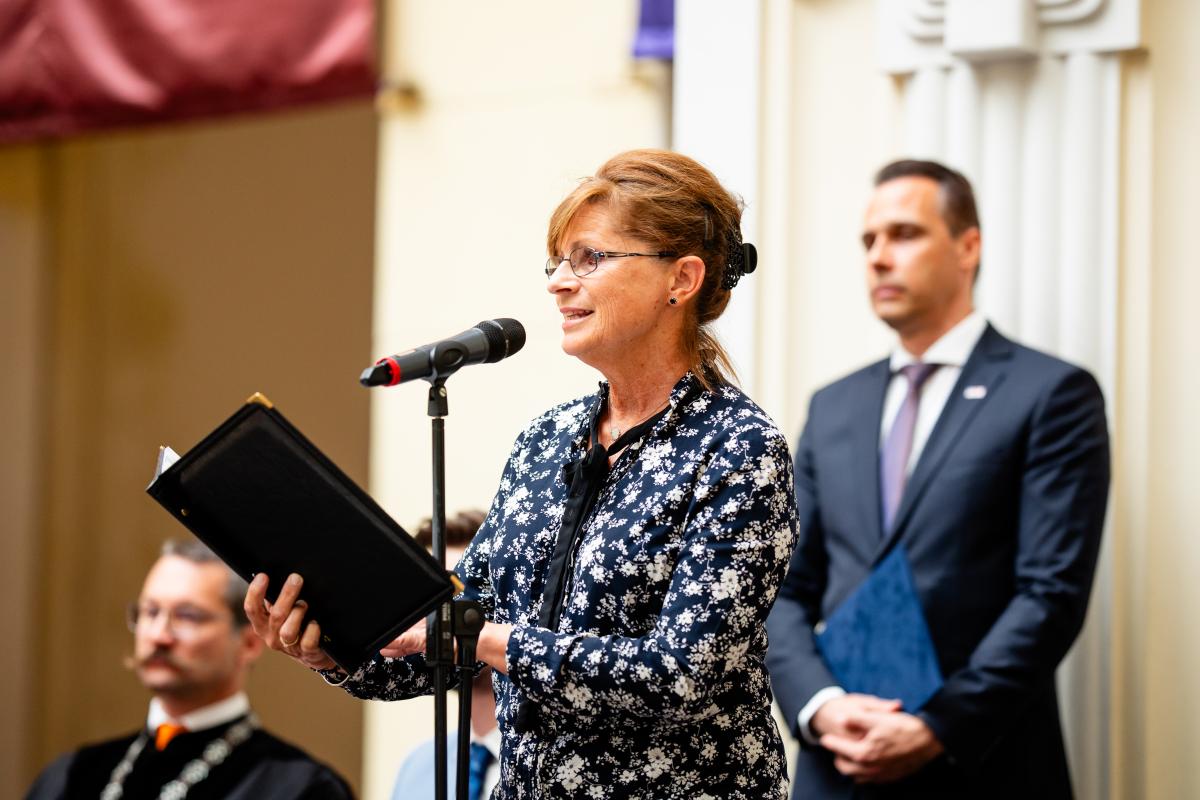
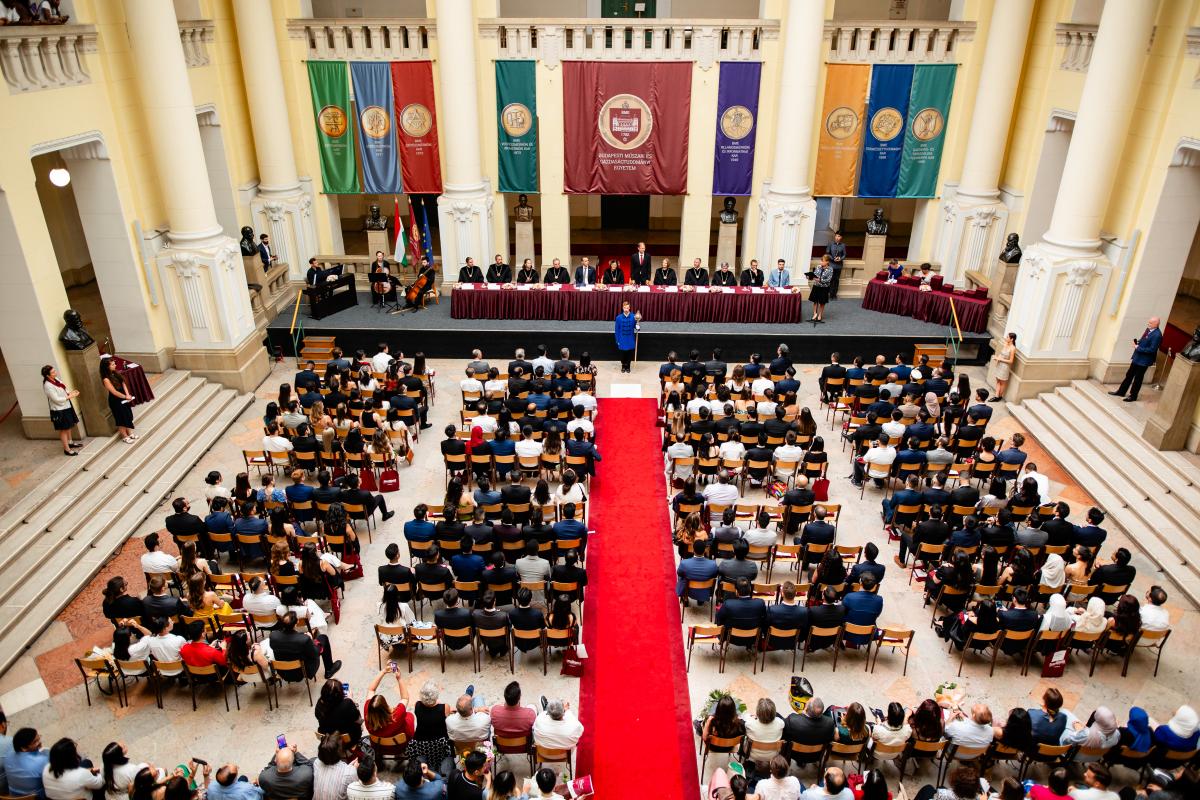
In her opening address, Emília Csiszár Koczkáné, BME’s vice-rector for international affairs, emphasized: “the BME management is committed to increase the number of students at the BME courses in English. At the moment, 14% of our students have enrolled to one of our courses in English.” When mentioning the responsibility and tasks awaiting the graduates, she added “our learning is growing at an unprecedented pace with new technologies appearing overnight. Your contribution to science and the development of your field is more important than ever. So I’m asking you to be both brave and humble enough to build the future of mankind on the fundamentals you have acquired here.” The Vice-Rector for international affairs of BME finally asked the graduates to become the BME’s ambassadors and further the university’s reputation in their home countries and everywhere else on the globe.
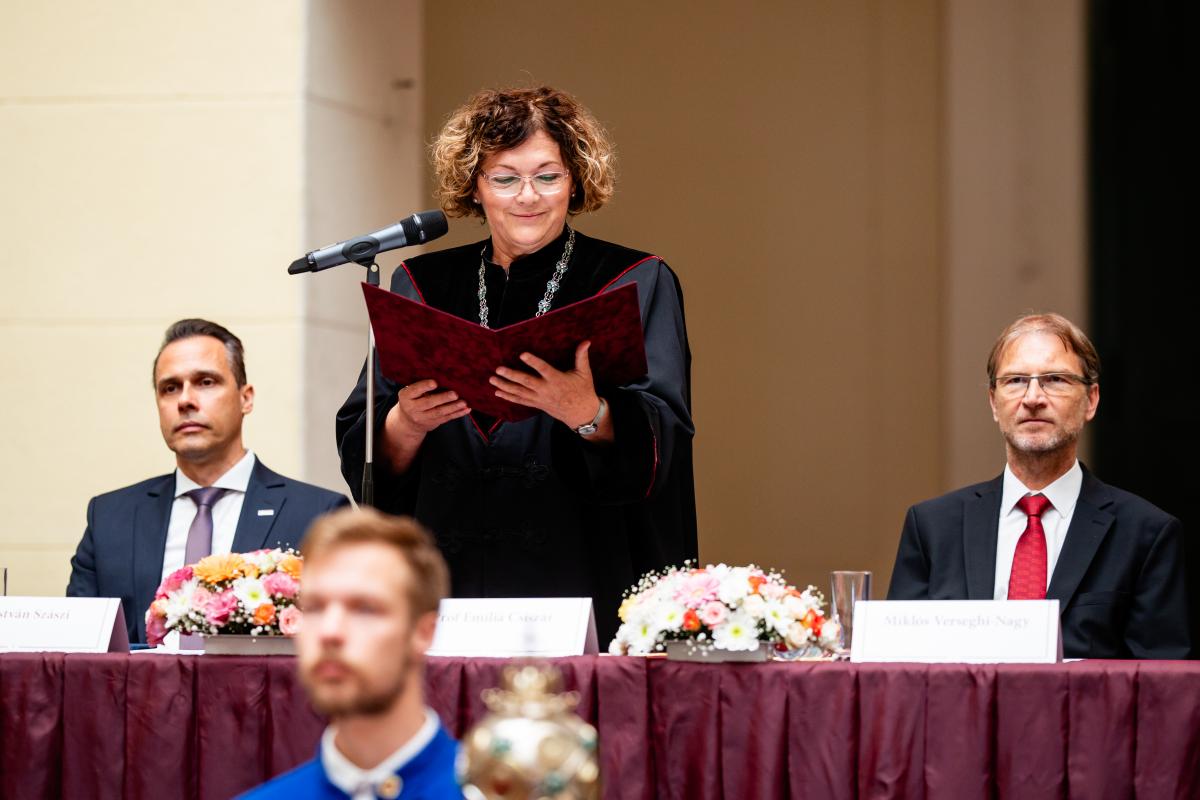
Dr. István Szászi, executive director of the Bosch Group in Hungary and in the Adriatic region spoke as a honorary guest of the alumni. István Szászi graduated from the BME Faculty of Transportation Engineering and Vehicle Engineering. In his speech he recalled his university years and the start of is career at the Bosch Development Centre in Budapest, explaining why he chose this company. “I know that it’s almost unthinkable today to plan a career for 20 or even 30 years. But there are two lessons from my story that I’d like to share with you. Two buzzwords: ecosystem and resilience. These two concepts are both key in individual and corporate success. In my opinion not only today but certainly in the coming decades as well. The most successful will be those who understand the power of the ecosystem and the potential of the failure. And those who can embrace the diversity of thought that comes from working with people from different backgrounds and cultures. The big problems that mankind is facing today are essentially engineering problems,” he added. “Whether it’s about climate change, mobility or the challenges of artificial intelligence. Politicians and thinkers might define the scope of the task, but it’s up to us, engineers to deliver the solutions. You are the architects of progress, the pioneers of innovation and the ambassadors of change. Be brave, be bold and above all, be a driving force for a better world,” István Szászi concluded his welcome speech.
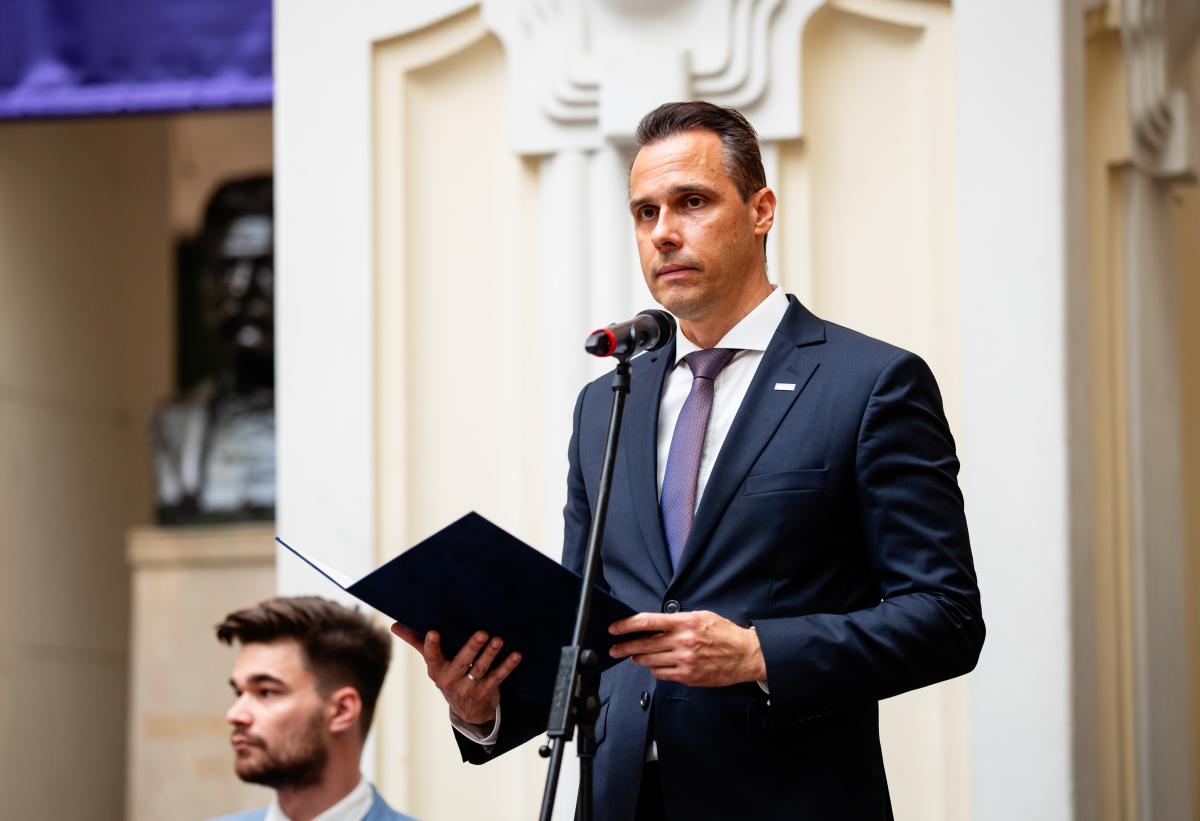
Levente Nagy, representative of the Student Union of the University in charge of international and Erasmus affairs emphasized in his speech: “Keep in touch with each other and never forget the beautiful times that you spent together. Your road will take you to different places, but you will always be part of the BME community.”
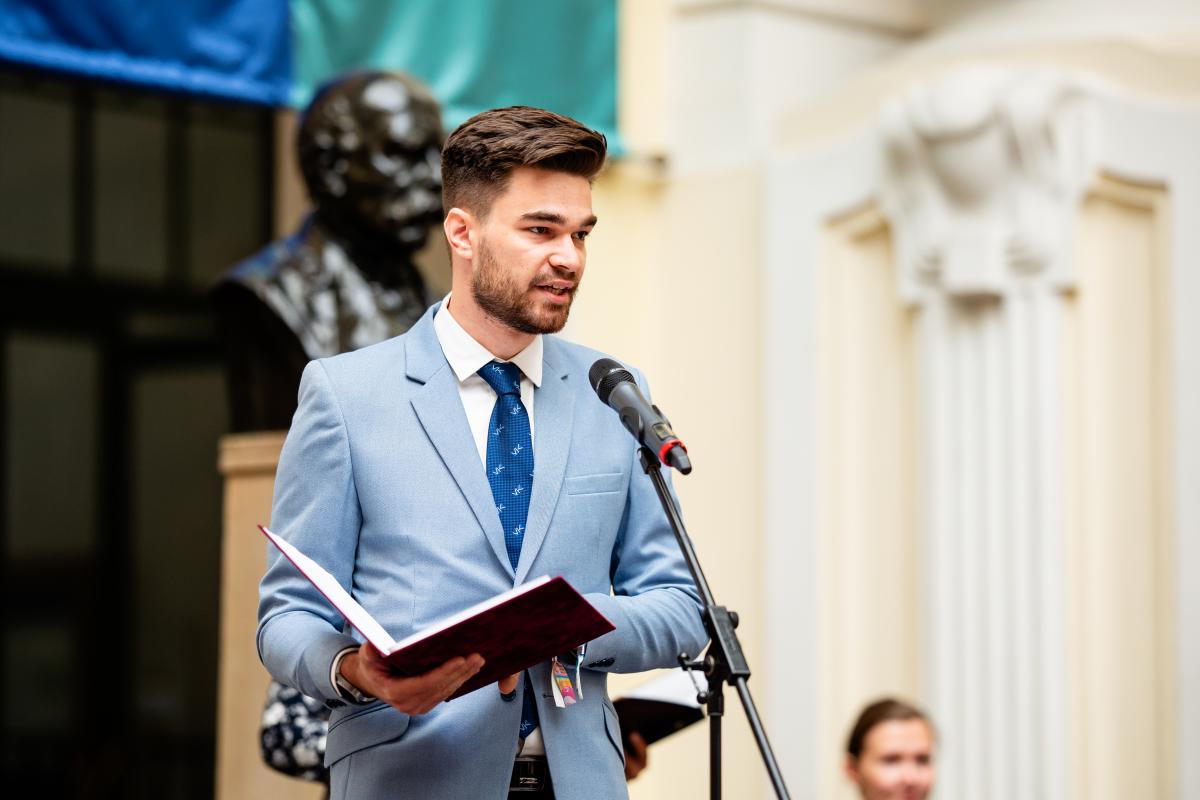
Brenda Muthuli Muwanwa, student of the BME Faculty of Civil Engineering addressed the audience on behalf of the graduating students, saying “the bonds we have formed here will endure the test of time. As we venture into the wider world, let us remember the lessons we have learnt among these walls. Let us embrace the values of integrity, compassion, resilience and perseverance that have been instilled in us. Though we may part ways physically, the excellent spirit of BME will forever be ingrained in our identities. Today I am reminded of the words of my late South African president, Nelson Rolihlahla Mandela: “Education is the most powerful weapon, which you can use to change the world.”
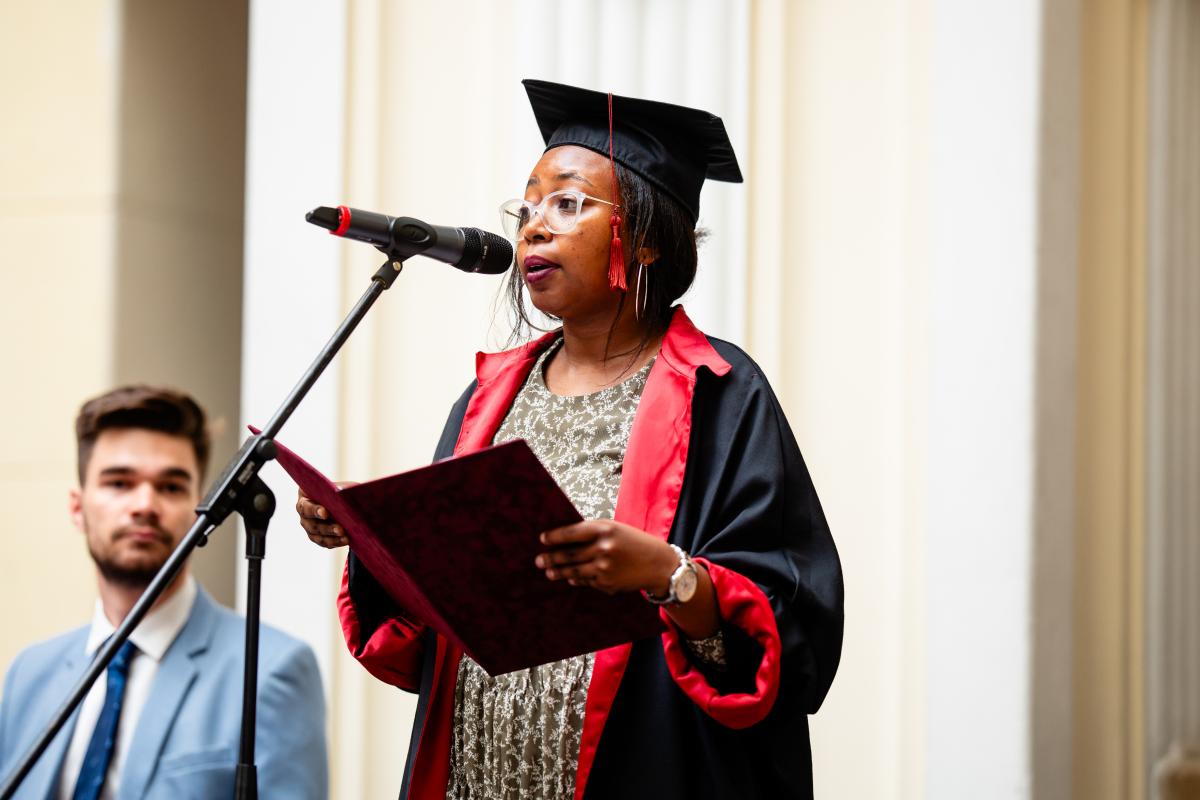
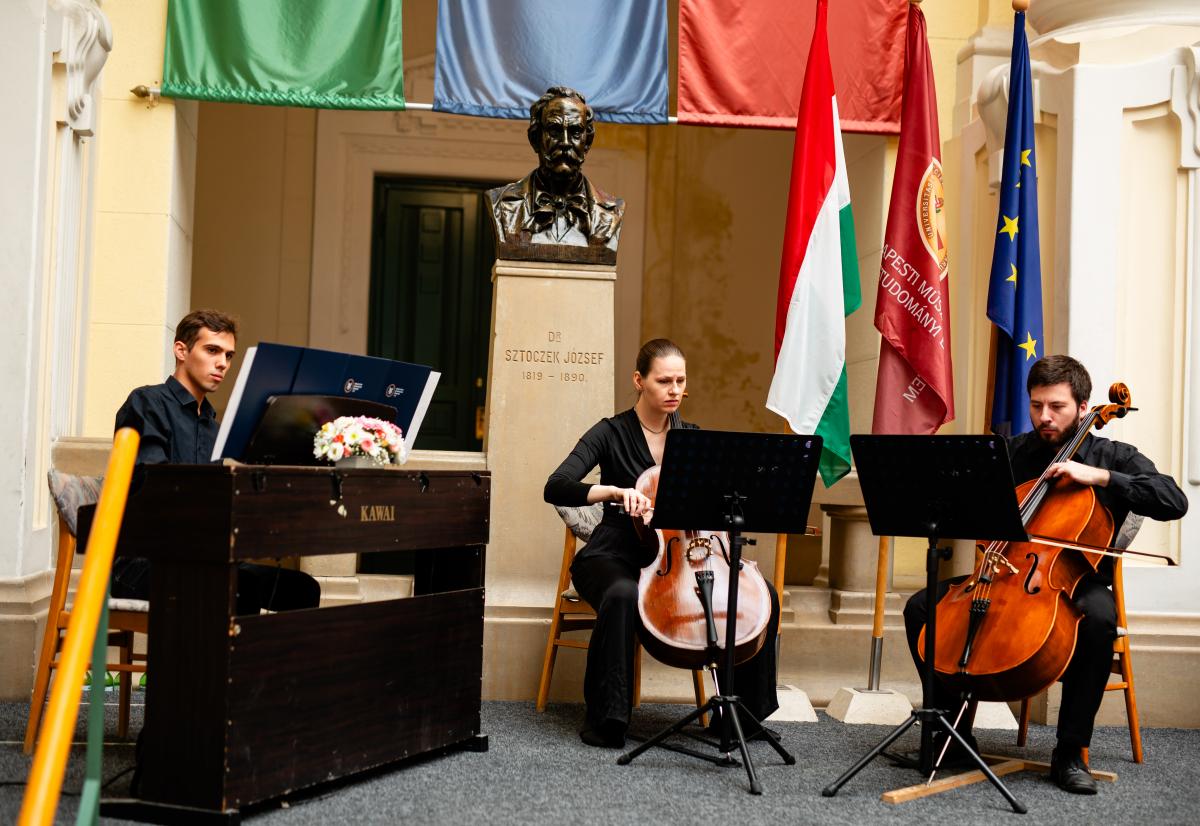

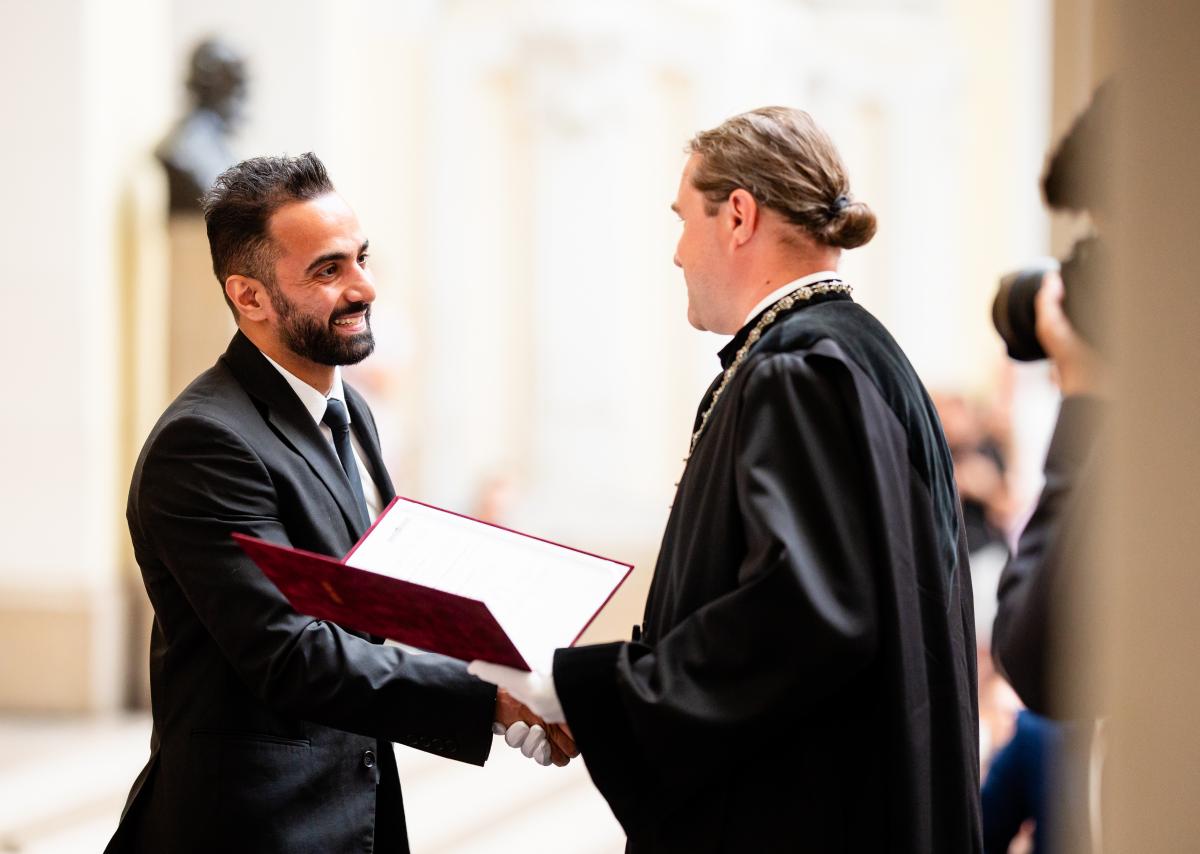
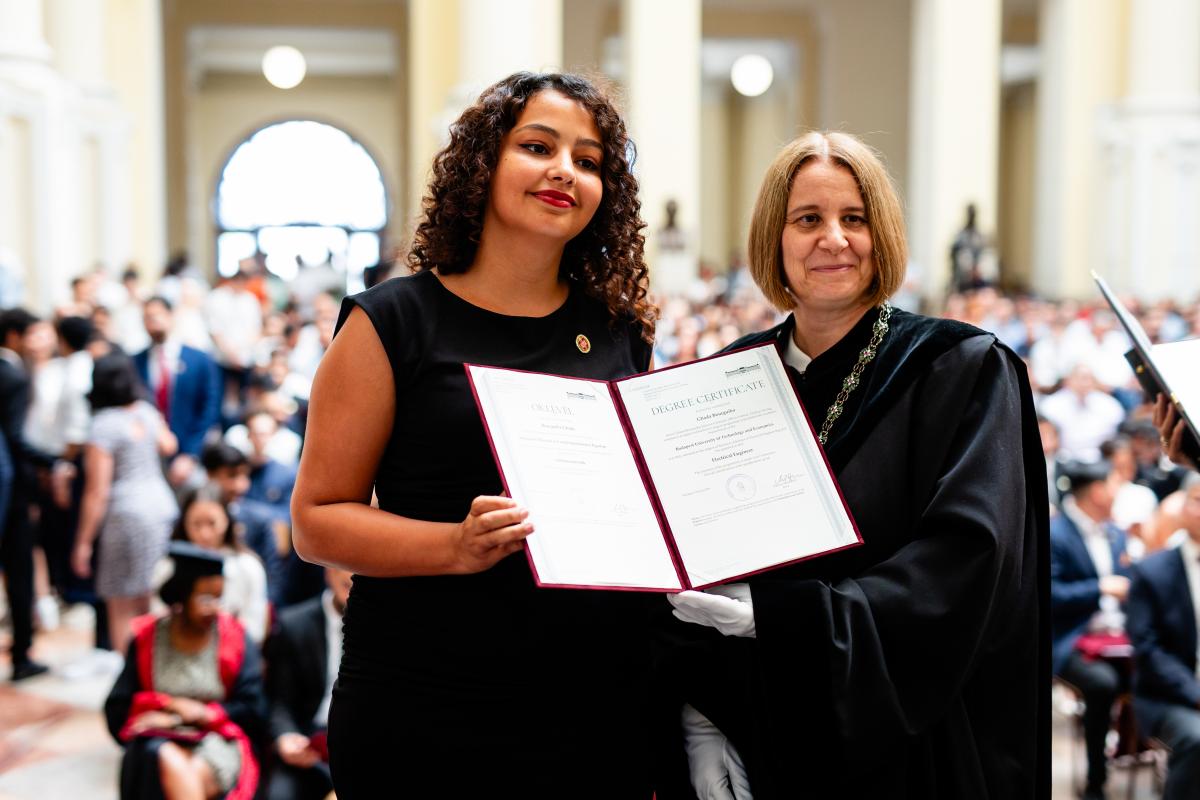
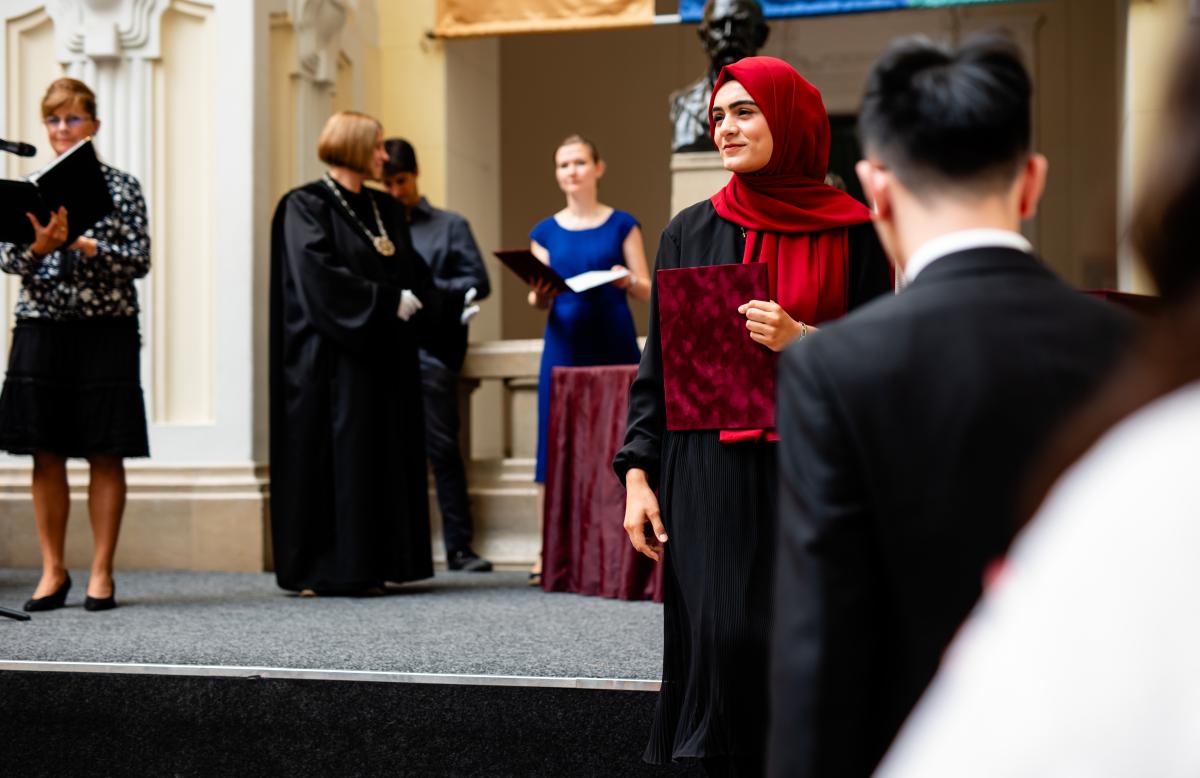
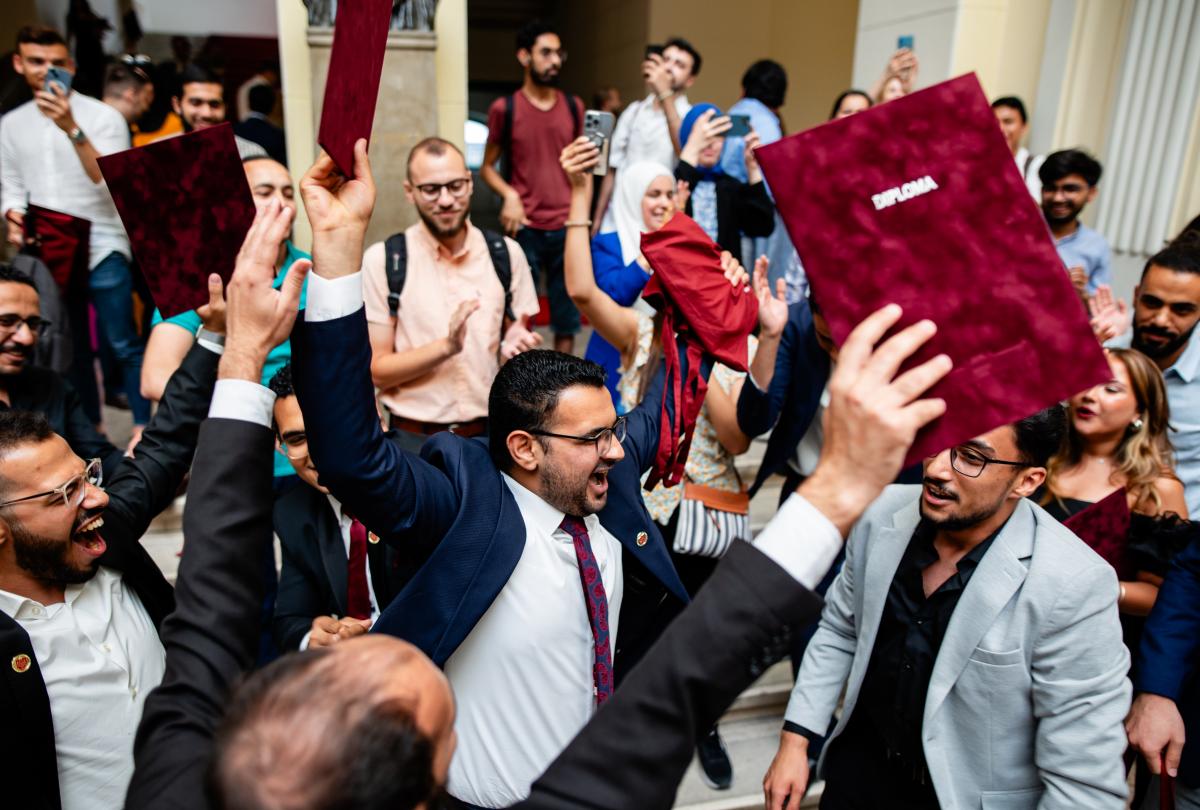

Here are some more photos:
Referendum cannot be held in Hungary’s hottest topic
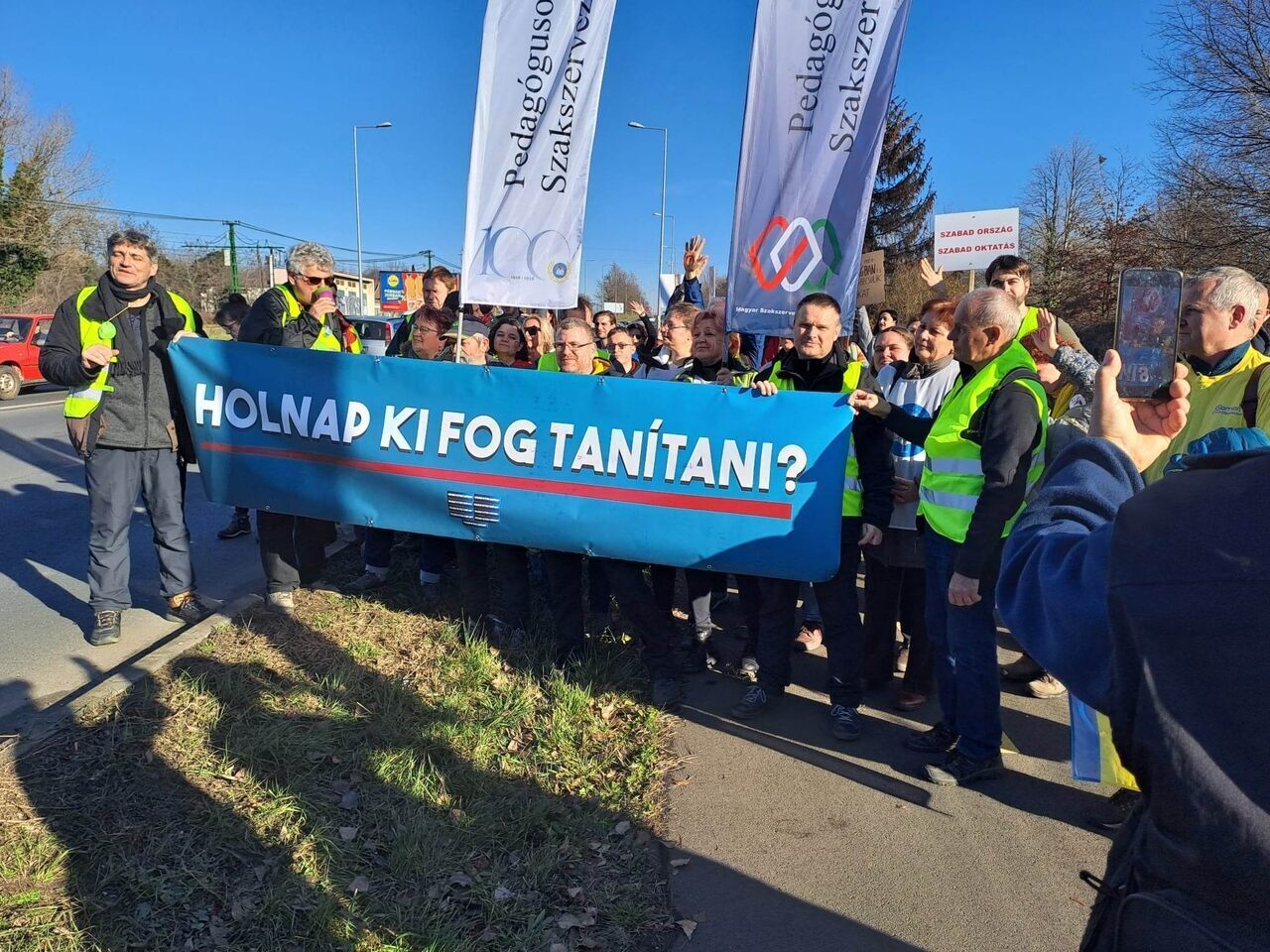
The Constitutional Court on Thursday threw out a referendum initiated by teachers’ trade union PSZ, the union said in a statement sent to MTI.
In its Thursday ruling, the top court, acting as a tertiary forum, scrapped a secondary decision by the Kúria, the supreme court, which had given the green light to two out of the five original questions, PSZ said.
All five questions, concerning the qualification of teachers, the number of classes at school, as well as school closures, had earlier been rejected by the National Election Committee (NVB), which said at the time that answering the questions would need “special information, which cannot be expected from voters … and they could therefore not assess the ramifications of their decision”, MTI wrote.
PSZ regretted that the Constitutional Court had “taken over the arguments of the NVB … taking voters for minors”. Both organisations, they said, “assume that voters could not decide whether the number of weekly classes should be reduced by three or if schools for disadvantaged children should have the same curriculum as institutions of the elite.”
Hungarian higher education lags behind other EU countries

The expansion of Hungarian higher education did not increase but rather reduced the chance of access to higher education for applicants coming from economically backward regions. Meanwhile, the number of students coming from affluent regions has been steadily growing, which made the competition decline.
Unequal access to Hungarian universities
The increase in the proportion of Hungarian graduates between 2004 and 2022 is significantly lower than the EU average and that of the countries of the region. This means a significant drop in competitiveness in the long term. According to a recent study, problems are hidden behind seemingly positive trends. Even though proportionally access to higher education is widening, meaning more students enrolled in the given age group. At the same time, the social inequality inherent in the entry process is on the climb.
Therefore, the expansion of Hungarian higher education did not increase but decreased the chance of access to higher education for applicants coming from economically backward regions. Meanwhile, the number of students coming from affluent regions has been steadily growing, which made the competition decline, writes g7.hu.
Number of admissions increased between 2001 and 2022
Although the population in the age group of undergraduates plummeted between 2001 and 2022, the absolute number of applicants and those admitted to higher education decreased even more disproportionately. As a result, the ratio increased. At the same time, there were relatively large fluctuations in the number of all applicants and those admitted. According to the author, it can be down to educational policy measures such as the 2007 introduction of tuition fees and the 2013 attempts to raise self-costs as well as the mandatory advanced-level graduation introduced in 2020.
The study makes another important point regarding the generally increasing chance of admission: the rate of growth shows a slowing trend between 2001 and 2022. By 2015, the proportion of those admitted to undergraduate full-time university education compared to all applicants will have dropped significantly.
Chances favour the wealthy
The chances always look rosier for applicants coming from more affluent micro-regions than for others. The difference is relatively large. At the same time, the gap between 2013 and 2017 only widened: it became even easier for the top two-tenths to enter and even more difficult for the bottom tenths. In Hungarian society, the slope of inequality has become steeper.
Hungarian education lacks resources
In the past two decades, governments have withdrawn significant resources from Hungarian education as a whole. A massive withdrawal of funds can be seen in Hungarian higher education starting in 2012. This can be somewhat corrected by the large amount promised to foundation universities in a 2021 government decree. However, the ratio of expenditure does not reach either the EU or the OECD average.
MEP Gyöngyösi: Hungary’s education behind the iron curtain again

Sponsored content
MEP Márton Gyöngyösi’s (Non-attached) thoughts via press release:
It seems almost completely certain that Hungarian higher education will be banned from the Erasmus and Horizon programmes as of next year, and thrown back to roughly where it was during Socialism. The reason is quite trivial: political control over the universities is more important for Fidesz than the interests of Hungarian students and researchers.
We have seen this one coming for quite a while. As soon as the first measures were taken to transform the operation of Hungarian universities, we could all see that the “market-based” model change had nothing to do with the market or competitiveness. Quite the contrary, it was much more important for the government to transfer the assets of Hungary’s higher education system to private foundations, the boards of which were then filled with (who else?) Fidesz ministers, MPs and Viktor Orbán’s current favourites.
Ignoring the months-long protests of students, teachers and the sensible public, the Fidesz steamroller crushed all contrary opinions the usual way.
What they might not have considered is that the world has some bigger machines than the Fidesz steamroller…
The first shock came when the European Commission suggested that they might exclude Hungarian universities from the Erasmus and Horizon programmes, because they thought the presence of active politicians in university foundation boards poses several conflicts of interest. The first problem is that these politicians may exercise direct influence on the institutions, which would be a serious violation of the fundamental principles of academic freedom that were laid down as early as the 12th century. The second conflict comes from the fact that the universities’ applications for funding would be signed by the very same politicians who, in their other positions, would decide how to allocate those funds.
Although Tibor Navracsics promised the stars and the moon to solve this problem, now we are at a point when it can’t be done unless the Hungarian Parliament adopts the bill and the European Commission reviews it at breakneck speed by September.
The chances for that are minimal, because both the Hungarian Parliament and the European Commission are on holiday for the summer. As the former European Commissioner for Education, Navracsics was quite aware of this fact, but he still lied to the face of Hungarian youth and researchers – which comes as no surprise from the talking heads of the long-reigning Fidesz regime.
So what’s next?
For the year 2024, Hungarian students and researchers are no longer allowed to apply for the Erasmus and Horizon programmes, respectively. Furthermore, foreign students and researchers won’t come to our universities from the EU, either. Just imagine what kind of processes it will trigger at a time when a significant share of Hungarian secondary-school leavers already apply to foreign universities. Hungary’s higher education system will sink back to the Socialist times in several aspects, including that the spoiled brats of the corrupt third-world elite will be here instead of European students, and they will be welcome guests, too.
In return, the talented Hungarian youth will enrich the research results of other countries, and they are likely to stay there, too, after seeing the gaping difference between Orbán’s Hungary and the societies and career options in other European states.
And how will Hungary’s government react to that? The same as always: they’ll keep lying and open recruitment offices abroad to bring people back.
Dear Mr Navracsics, dear Fidesz politicians,
Hungarian youth are not stupid, please don’t take them for fools! Stop lying and withdraw from education affairs. Just turn your greed down a notch. If you don’t, you will destroy Hungary’s future, if you haven’t done so already. It’s as simple as that.
Disclaimer: the sole liability for the opinions stated rests with the author(s). These opinions do not necessarily reflect the official position of the European Parliament.
British examination board in action at Budapest’s IBS
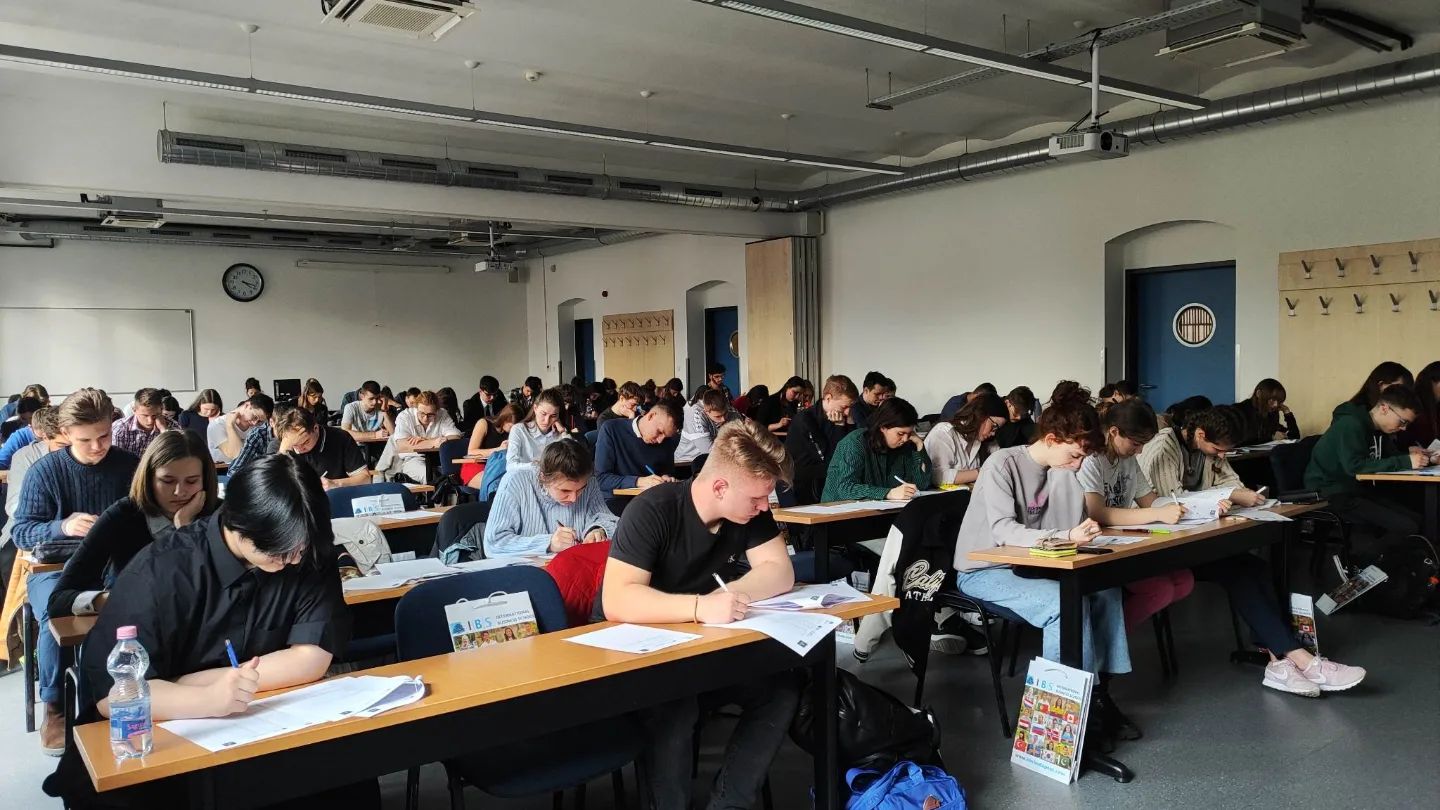
While at Hungarian universities, students’ grades often depend on the benevolence or strictness of the lecturer conducting the seminar or lecture, the British system makes sure that all students receive their results based on the same standards. IBS is the only higher education institution in Hungary to use the Examination Board’s multi-day evaluation and control process called Moderation, which is a crucial component of quality assurance in British universities.
The Examination Boards are responsible for approving the marks obtained by the students. First, Internal Examiners, made up of IBS faculty members, carefully check the assessment packs submitted by the Module Leaders, and inspect the marking results and procedures throughout the semester. They internally guarantee conformity to predetermined standards and upholding fairness in evaluations across groups, markers, and different subjects. The assessed work submitted by students is then reviewed by the External Examiners, who are invited from British universities external to IBS and its strategic partner, The University of Buckingham. These experienced professors provide external benchmarking and add new viewpoints to the assessment process. Their insightful opinions help IBS to uphold its high British standards and further ensures that assessment strategies keep up with the times.
Through these quality assurance procedures, the Board makes sure that each student receives a fair evaluation as well as thorough written feedback that will aid in their future development. This year, the External Examiners again underlined how reliable and excellent the IBS evaluation procedures are. International Business School places a high value on transparency and fairness in its educational practices, so we are pleased with the feedback from the Examination Boards. We are delighted to continue to see it guaranteed that the quality of all assessment of student work, on all IBS Bachelor’s and Master’s programmes, is ensured in a way that is distinct from other higher education institutions in Hungary. Want to know more? Click HERE.
Szijjártó: East-West cooperation no hazard
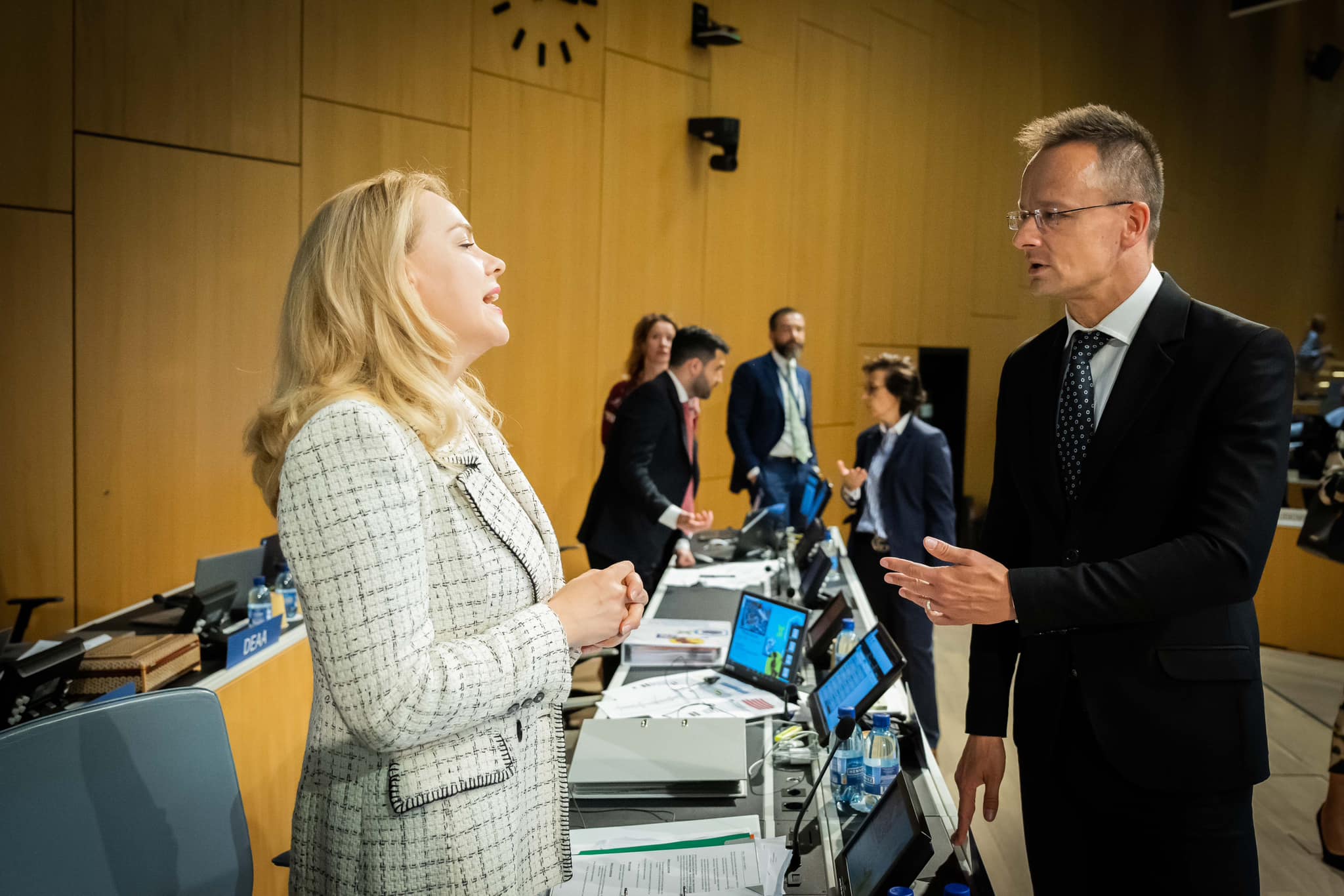
Cooperation between the East and the West should be considered “a great opportunity rather than a hazard with both sides benefitting”, Foreign Minister Péter Szijjártó said in Geneva on Thursday.
The foreign ministry quoted Szijjártó as saying at the general assembly session of the World Intellectual Property Organisation that the competition between the East and the West “has intensified but also levelled out in recent years”. Serious geopolitical challenges and “politicisation of the world economy” are pointing towards the world being divided into blocs once again, “the worst news for Hungary,” the minister said, and called for “connectivity” and a rational and mutually beneficial division of labour between East and West. “Our peoples have a vested interest in civilised East-West cooperation rather than isolation into blocks and animosity,” he said.
Hungary is an “excellent example” for that cooperation, Szijjártó said, adding that the country had become an important hub for Eastern and Western investments, with special regard to electric car making. “We, Hungarians can profit a lot from becoming the new European centre for that innovative industry,” Szijjártó said.
Citing a recent report by WIPO, Szijjártó said Hungary ranked fifth in a global comparison with regard to its high-tech production and tenth in exports, while it was 95th regarding the size of its population.
Szijjártó said the number of engineering and ICT students had increased by 34 percent in a single year, while the number of engineers in the research and development sector doubled, adding that the number of small and medium size companies with innovative products had increased by 73 percent. “This is the best possible path for a small country without a coastline or vast energy resources,” he said.
Despite ongoing protests, Hungarian parliament passes new education law
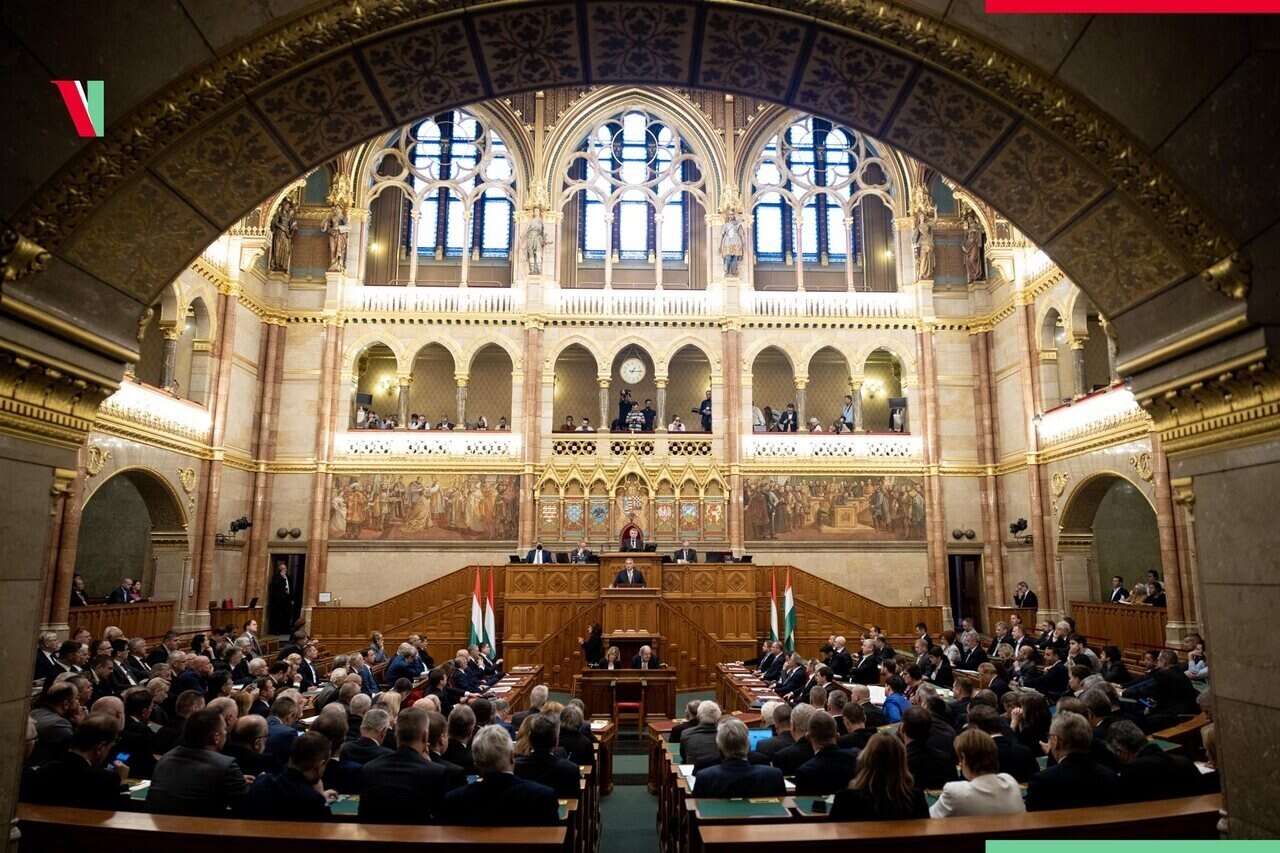
Parliament voted by 134 votes in favour, 60 against and no abstentions on the parts of the bill requiring a qualified majority, and by 136 votes in favour, 58 against and no abstentions on the parts requiring a simple majority, so the new “career-path” law will enter into force on 1 January 2024.
Teachers will be transferred from the public servant status to public education employee status, while a new number of weekly classes and a performance-based system of salaries will be introduced. Employers must inform teachers about the changes by 15 September, and teachers will have until 29 September to decide whether to accept it. The law will come into force next year.
In the future, the education district centre will have the right to transfer teachers to a different location within the district if the commute by public transport does not exceed three hours. Monthly salaries for teachers will be set in four bands depending on grading, with the lowest band ranging from HUF 410,000 (EUR 1,100) to 1,065,000 and the highest from HUF 640,000 (EUR 1,709) to 1,470,000 (3,925).
The interior ministry said that the new law would boost the average teacher wage to HUF 800,000 by 2025, while their maximum classroom time would change from 22-26 to a fixed 24 hours a week. Paid holidays will increase from 46 days to 50 days, or 10 weeks, and their administrative burdens will be reduced, it added.
“These are the facts, despite the fake news generated by the left wing, their actions and protests ending in violence during the preparation and approval of the law,” the ministry said. “The preparation, submission and approval of the law was preceded by comprehensive social and professional coordination,” it added.
The significant salary increase for teachers can continue once Brussels transfers the resources allocated to Hungary, the ministry said. “The left-wing politicians actions connected to the law have been hypocritical: demanding a wage increase for teachers at home while they work for monthly HUF 5-6 million in Brussels in order to prevent teachers from making HUF 800,000,” it added.
Months of protests against the new law
Professional and advocacy organisations have been protesting against the introduction of the law for months, Telex reports. After the draft was published, students, teachers and parents joined several protests to call for its withdrawal. The draft law was originally dubbed the “revenge law” because critics say the government is out for revenge by removing the status of public servants from teachers, making strikes impossible and banning freedom of expression.
Teachers will be informed before the entry into force that their status as a public servant will be terminated and will have to declare whether they wish to transfer to the status of public education employee. So far, nearly 5,000 have indicated that they will resign if the status law is introduced. Those who do not sign the new status will no longer be allowed to work as teachers.
According to the trade unions, the status law does not include their original strike demands: for example, an immediate, large pay rise and a reduction in the workload. They also criticised the lack of meaningful, professional consultation before the law was passed. For example, Olivér Pilz, a member of the Tanítanék Movement, said at a discussion on the problems of public education: “The new status law only exacerbates the workload of teachers, covering up the shortage of teachers by substitutions. This law will drive teachers to their death, they are in a very bad psychological state”.
“What is needed is not a new status law, including a reduction in the autonomy of education workers, but education reforms based on broad social consultation,” the Democratic Trade Union of Teachers (Pedagógusok Demokratikus Szakszervezete, PDSZ) said in a statement earlier.

